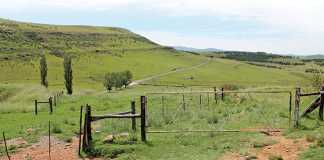Judging from past experience, it was very sceptical about the ability of the rural development and land reform, and the agriculture departments’ ability to successfully roll-out the plan for agri-parks.
Rural development minister Gugile Nkwinti said in his budget speech in parliament in May that government has set aside R2 billion in this financial year for the implementation of agri-parks in all 44 district municipalities, with priority to be given to the 27 poorest ones.
These agri-parks, Nkwinti said, would focus on the generation and stimulation of both subsistence and commercial enterprises.
Aims of the plan included “rekindling the class of black commercial farmers destroyed by the 1913 Natives’ Land Act” and to ensuring all land reform farms, including communal land, were 100% productive, said Nkwinti.
The first two agri-parks were to be established in Springbokpan in the Ngaka Modiri Molema District, North West, and Ncorha in the Chris Hani District, Eastern Cape, he said.
Speaking to Farmer’s Weekly earlier this year agriculture minister Senzeni Zokwana said the parks would serve as a kind of trading hub for farmers.
Aggrey Mahanjana, secretary general of Afasa said the plan would be doomed like so many other agricultural support programmes if government was not also prepared to invest in the necessary infrastructure on which the success of the agri-parks concept would depend.
“We have seen how government implements projects and if they are really planning to implement agri-parks in 27 or 44 municipalities in this financial year it will be a disaster,” said Mahanjana.
“The jackals and hyenas are waiting for that R2 billion to be made available,” he said.
Government should instead start by implementing one agri-park in each province and, if this proved successful, escalate implementation, said Mahanjana.
Afasa was also concerned about the lack of focus given in the plan to support smallholder farmers who service the markets that would be created through the agri-parks.










